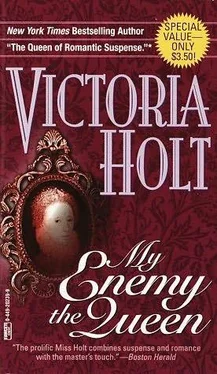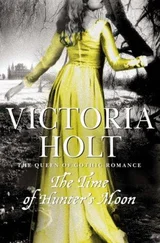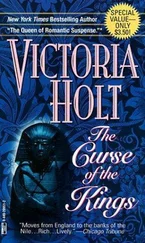Виктория Холт - My Enemy the Queen
Здесь есть возможность читать онлайн «Виктория Холт - My Enemy the Queen» весь текст электронной книги совершенно бесплатно (целиком полную версию без сокращений). В некоторых случаях можно слушать аудио, скачать через торрент в формате fb2 и присутствует краткое содержание. Жанр: Исторические любовные романы, на английском языке. Описание произведения, (предисловие) а так же отзывы посетителей доступны на портале библиотеки ЛибКат.
- Название:My Enemy the Queen
- Автор:
- Жанр:
- Год:неизвестен
- ISBN:нет данных
- Рейтинг книги:5 / 5. Голосов: 1
-
Избранное:Добавить в избранное
- Отзывы:
-
Ваша оценка:
- 100
- 1
- 2
- 3
- 4
- 5
My Enemy the Queen: краткое содержание, описание и аннотация
Предлагаем к чтению аннотацию, описание, краткое содержание или предисловие (зависит от того, что написал сам автор книги «My Enemy the Queen»). Если вы не нашли необходимую информацию о книге — напишите в комментариях, мы постараемся отыскать её.
It was always Lettice, the constant spoiler in the triangle of love surrounding Elizabeth...
My Enemy the Queen — читать онлайн бесплатно полную книгу (весь текст) целиком
Ниже представлен текст книги, разбитый по страницам. Система сохранения места последней прочитанной страницы, позволяет с удобством читать онлайн бесплатно книгу «My Enemy the Queen», без необходимости каждый раз заново искать на чём Вы остановились. Поставьте закладку, и сможете в любой момент перейти на страницу, на которой закончили чтение.
Интервал:
Закладка:
Victoria Holt
My Enemy The Queen
The Old Lady of Drayton Basset
Blame not my Lute! for he must sound
Of this or that as liketh me;
For lack of wit the Lute is bound
To give such tunes as pleaseth me;
Though my songs be somewhat strange,
And speak such words as touch thy change,
Blame not my Lute.
Sir Thomas Wyatt 1503-1542I never go to Court now. I stay in my house at Drayton Basset. I am getting old, and it is permissible for old women to sit and dream. They say: "My lady goes on. How old is she? Few have reached her age. It seems my lady will live forever."
I sometimes think that too. How many people now alive can remember that November day in the year 1558 when Queen Mary —whom people had begun to call Bloody Mary—died, causing no great sorrow to her people except to those supporters who had feared what her passing would mean to them? How many can remember when my kinswoman, Elizabeth, was proclaimed Queen throughout the land? Yet I remember it well. We were in Germany then. My father had thought fit to flee the country when Mary came to the throne, for life could be dangerous to those who by nature of their birth and religion looked to the young Elizabeth.
We were all summoned together and made to kneel and thank God, for my father was a very religious man. Moreover my mother was Elizabeth's cousin—so the new reign should bring good to our family.
I was just past seventeen at the time. I had heard a great deal about Elizabeth and her mother, Queen Anne Boleyn. After all, my mother's mother was Mary Boleyn, Anne's sister, and stories of our brilliant, fascinating kinswoman Anne were part of our family legends. When I saw Elizabeth I knew what that brilliance meant because she possessed it too—in a different way from her mother, but it was there all the same. Elizabeth had other qualities also. She would never have suffered from the executioner's sword. She was too clever for that; she had shown even during her early life a genius for self-preservation. But, for all her coquetry and dazzling adjuncts to beauty, she lacked the essential appeal which her mother must have had, and which my grandmother, Mary Boleyn—who had had the good sense to be the King's mistress and not bargain for a crown—had possessed in great measure; and if I am to write truthfully, I must not impede myself with false modesty and must say that I had inherited this appeal from my grandmother. Elizabeth was to discover this—there was little she did not discover—and she hated me for it.
When she came to the throne, she was full of good intentions, which I have to admit she tried to keep. Elizabeth had one important love affair in her life, and that was with the crown. She allowed herself a little dalliance, though; she liked to play with fire, but in the first year of her reign she was so badly scorched that I believed she was forever after determined it should never happen again. Never would she be unfaithful to the greatest love of her life—the glorious, glittering symbol of her power—the crown.
I could never resist taunting Robert with this even during our most passionate encounters—and there were many of those. He would become violently angry with me then; but I had the satisfaction of knowing that I was more important to him than she was. Apart from her crown.
There were the three of us—a challenge to fate. Those two who strutted across the stage were the two most brilliant, awe-inspiring figures of their time. I, the third member of the trio, was often kept in the background of their lives, yet I never failed to make my presence felt. Try as she might, Elizabeth never succeeded in shutting me out completely. In due course there was no one at Court whom the Queen hated as she hated me; no other woman so aroused that overwhelming jealousy. She had wanted Robert, and he became mine ... of his own free will; and the three of us knew that although she might have given him the crown—and he was as passionately in love with it as Elizabeth herself—yet I was the woman he wanted.
I often dream I am back in those days. I feel the exhilaration, the excitement creeping over me, and I forget that I am an old woman, and I long to make love with Robert again and do battle with Elizabeth.
But they are in their graves long since and only I live on.
So my consolation is to ponder on the past, and I live it all again, and sometimes I wonder how much of it I dreamed and how much was real.
I am reformed now—the Lady of the Manor. Some go to convents when they have lived lives such as I have; they repent their sins and pray twenty times a day for forgiveness in the hope that their last-minute piety will assure them a place in heaven. I have devoted myself to good works. I am the bountiful lady. My children die, but I live on; and now it has struck me that I will write it down as it happened, and that will be the best way to live it all again.
I shall try to be honest. It is the only way I can relive the past. I shall try to see us as we really were—a brilliant triangle, for any must be brilliant with those two scintillating at two points, so brightly often as to obscure the vision. And myself there too, as important to them—for all their power—as they were to me. What emotions shook that triangle: Robert's love for me, which made me the Queen's rival; her hatred of me born of jealousy and the knowledge that I could please him as she never could; those rages of hers which somehow never allowed her to lose sight of her own advantage. How she loathed me, calling me "That She-Wolf," which others imitated rather to please her than out of contempt for me. Yet I—only I—of all the women in her life was to cost her so much in jealousy and anguish—and only she would cost me so much. We were in conflict, and she had the advantage. It was her power against my beauty—and Robert, being the man he was, was drawn this way and that between the two of us.
Perhaps she was the winner. Who shall say? Sometimes I am not sure. I took him from her, but then she took him from me— and death cheated us both.
She had her revenge on me and it was a bitter one—but I still have the fire and the passion left to me, old as I am, to tell our story. I want to convince myself of the way it happened. I want to tell the truth about myself ... about the Queen and the two men we loved.
The Exiles
While the city is covered with gibbets and the public buildings so crowded with the heads of the bravest men in the kingdom, the Princess Elizabeth, for whom no better fate is foreseen, is lying ill about seven or eight miles from hence, so swollen and disfigured, that her death is expected.
Antoine de Noailles, the French Ambassador, commenting on one of Elizabeth's "favourable" illnesses at the time of the Wyatt Rebellion.I was born in the year 1541, five years after Elizabeth's mother had been executed. Elizabeth herself was eight years old. It was the year after the King had married another kinswoman of mine, Catherine Howard. Poor child, the following year a fate similar to that of Anne Boleyn overtook her, and Catherine too was beheaded at the King's command.
I had been christened Letitia after my paternal grandmother, but I was always known as Lettice. We were a large family, for I had seven brothers and three sisters. My parents were affectionate and often stern, though only for our own good, as we were often reminded.
My early years were spent in the country at Rotherfield Greys, which the King's recognition of my father's good services had secured for him some three years before I was born. The estate had come to my father through his, but the King had a habit of taking for his own any country mansion he fancied—Hampton Court was the outstanding example of this royal avarice—so that it was comforting to know that he accepted my father's claim to his own property.
Читать дальшеИнтервал:
Закладка:
Похожие книги на «My Enemy the Queen»
Представляем Вашему вниманию похожие книги на «My Enemy the Queen» списком для выбора. Мы отобрали схожую по названию и смыслу литературу в надежде предоставить читателям больше вариантов отыскать новые, интересные, ещё непрочитанные произведения.
Обсуждение, отзывы о книге «My Enemy the Queen» и просто собственные мнения читателей. Оставьте ваши комментарии, напишите, что Вы думаете о произведении, его смысле или главных героях. Укажите что конкретно понравилось, а что нет, и почему Вы так считаете.











